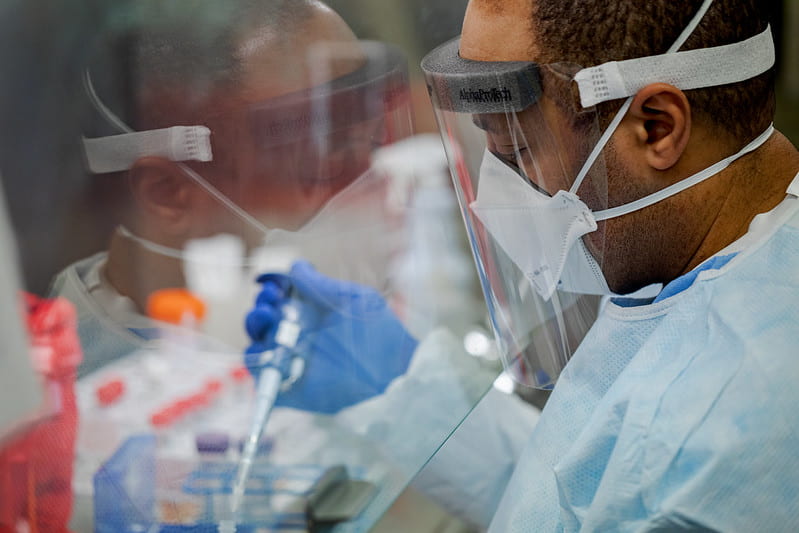Science funding for crisis response and long-term resilience
By c.washbourne, on 5 February 2021
By Carla-Leanne Washbourne, Julius Mugwagwa, Remy Twiringiyimana and Anne-Marie Kagwesage
As we enter the second year of the COVID-19 pandemic, many countries are still struggling to cope with ongoing and evolving challenges brought by the virus. Governments are actively responding, day to day, with new or improved guidance for their population, based on the most up to date understanding of the pandemic, drawing on cutting edge insights from a range of different research fields.
In the shadow of this evolving crisis, the line between short term response and long-term sustained management has become more and more blurred. The impact of the COVID-19 pandemic is exacerbated by, runs in parallel to, and draws focus from many other critical and long-term social and environmental issues, including demographic shifts, urbanisation and the climate and extinction crises. Institutions tasked with supporting national systems of science and innovation have a huge role to play in the response to all of these challenges. For them, the pandemic presents both a great opportunity to generate and communicate technical insights, which could have real and immediate societal impact, and a challenge in allocating and mobilising resources to ensure a balance of short-term responsive issues and longer term developmental and strategic goals are being met.
 Close
Close






